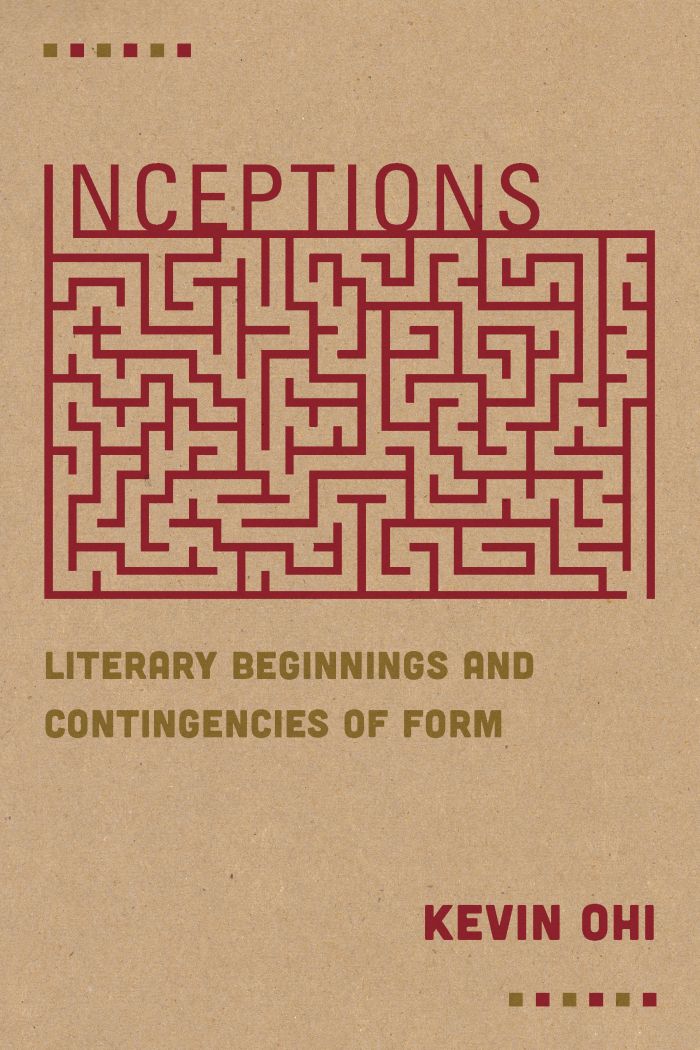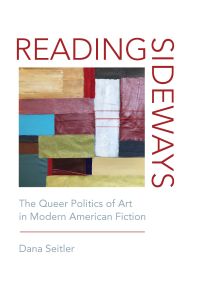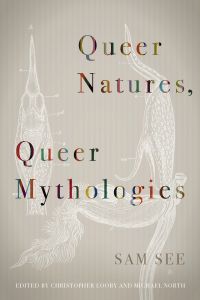Inceptions
Literary Beginnings and Contingencies of Form

This book can be opened with

The beginning is both internal and external to the text it initiates, and that noncoincidence points to the text’s vexed relation with its outside. Hence the nontrivial self-reflexivity of any textual beginning, which must bear witness to the self-grounding quality of the literary work— its inability either to comprise its inception or to externalize it in an authorizing exteriority. In a different but related way, the fact that they must begin renders our lives and our desires opaque to us; what Freud called “latency” marks not only sexuality but human thought with a self-division shaped by asynchronicity.
From Henry James’s New York Edition prefaces to George Eliot’s epigraphs, from Ovid’s play with meter to Charles Dickens’s thematizing of the ex nihilo emergence of character, from Wallace Stevens’s abstract consideration of poetic origins to James Baldwin’s, Carson McCullers’s, and Eudora Welty’s descriptions of queer childhood, writers repeatedly confront the problem of inception. Inception introduces a fundamental contingency into texts and psyches alike: in the beginning, all could have been otherwise.
For Kevin Ohi, the act of inception, and the potential it embodies, enables us to see making and unmaking coincide within the mechanism of creation. In this sense, Inceptions traces an ethics of reading, the possibility of perceiving, in the ostensibly finished forms of lives and texts, the potentiality inherent in their having started forth.
Inceptions is an erudite, original investigation into the conditions of possibility of works of literature: how formal language evolves from the silence or noisiness of the world. The investigation is as much ethical and erotic as it is formal. Returning to the origins of texts restores the moment when the text was all potential; this revives the moment of freedom to our lives and subjectivities. The book will be of interest to scholars of each of Ohi’s authors; Ohi is a match (to name three of them) for George Eliot’s complexity, Henry James’s subtlety, and Wallace Stevens’s abstraction.—John Limon, Williams College
Exordium | 1
Part I: Potentiality and Gesture
1 Revision, Origin, and the Courage of Truth: Henry James’s New York Edition Prefaces | 23
2 “First Love”: Gesture and the Emergence of Desire in Eudora Welty | 50
Part II: Novels and the Beginnings of Character
3 Robinson Crusoe and the Inception of Speech | 73
4 The Clock Finger at Nought: Daniel Deronda and the Positing of Perspective | 91
5 Proto-Reading and the Positing of Character in Our Mutual Friend | 103
Part III: Our Stony Ancestry
6 Ovid and Orpheus | 127
7 Wallace Stevens and the Temporalities of Inception and Embodiment | 148
Part IV: Solitude and Queer Origins
8 “Epitaph, the Idiom of Man”: Imaginings of the Beginning | 177
9 Etiology, Solitude, and Queer Incipience | 199
Acknowledgments | 223
Notes | 227
Index | 283




